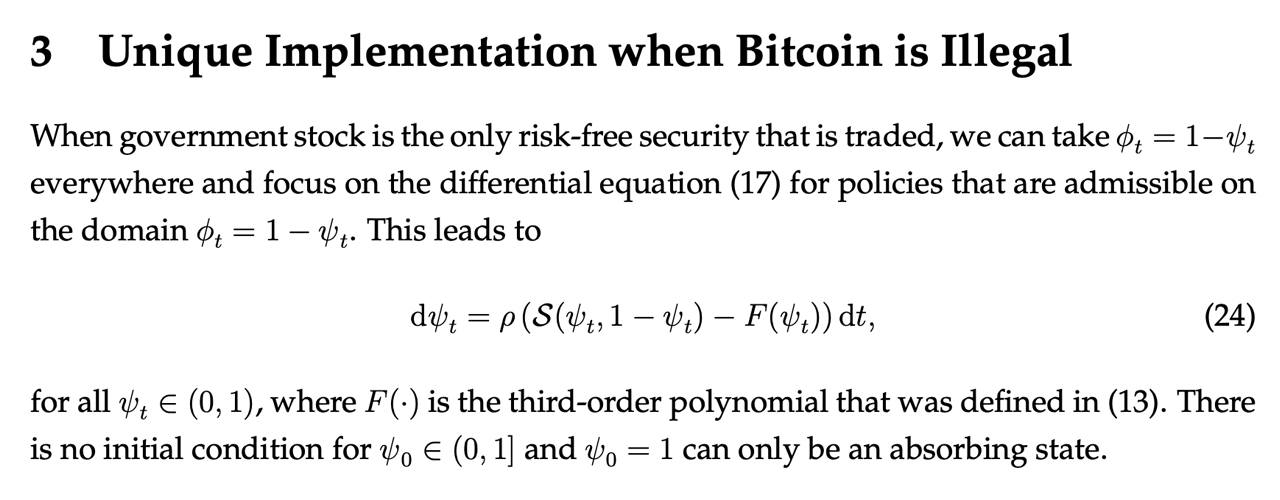Amol and Luttmer’s working paper examines how the presence of bitcoin (BTC), ironically referred to as a “useless piece of paper,” complicates the government’s ability to maintain a permanent primary deficit policy. According to the research, the trade of bitcoin undermines the implementation of such policies by creating alternative steady states where the government’s strategies may not hold. The working paper emphasizes that in a scenario where bitcoin is legally prohibited, or where a specific tax rate is applied to it, these fiscal policies can regain their effectiveness.
The authors propose two primary solutions for governments: a legal prohibition against trading bitcoin or the imposition of a tax at the rate of -(r – g), where r denotes the real interest rate and g the economy’s growth rate. By setting this tax greater than zero, governments can eliminate equilibria where bitcoin trades at positive prices. This action would theoretically prevent bitcoin from destabilizing fiscal policies aimed at sustaining permanent primary deficits, restoring unique policy implementation in the affected economy.

An excerpt from the study.
The working paper dives into the technical details of how these solutions would work. Amol and Luttmer use economic modeling to demonstrate that without such interventions, bitcoin introduces indeterminacy into fiscal policy implementation. In particular, bitcoin’s trade creates multiple potential equilibria that complicate the government’s fiscal management, such as leading to a “balanced budget trap” where the government is unable to sustain primary deficits due to competing value in bitcoin.
Amol and Luttmer emphasize the need for decisive government action. They suggest that prohibiting or taxing bitcoin is a form of financial repression but argue that it may be necessary to maintain fiscal stability. The authors caution that alternative strategies to regulate bitcoin would need to be carefully designed to avoid abrupt market shifts or unintended consequences. Their findings align with broader concerns from government agencies and bureaucrats about the challenges digital currencies pose to traditional fiscal policies.
Despite the 37-page effort, the prohibition or taxation of bitcoin to support permanent deficits is flawed on multiple fronts. First, it underestimates bitcoin’s resistance to centralized control, undermining the feasibility of outright prohibition. Second, from an ethical standpoint, financial repression, like prohibitive taxation or bans, involves coercive intervention, violating principles of voluntary exchange essential to free markets and individual sovereignty. Lastly, government restrictions undermine market dynamics, inhibiting the organic development of value systems independent of fiat control.
Applying math to the proposition that bitcoin prohibition or taxation can aid governments in maintaining permanent deficits is misguided because it treats human action and economic systems as static, linear equations. This overlooks the dynamic nature of markets and individual preferences. Human action is subjective and cannot be reduced to mathematical formulas. Economic behavior emerges from individual choices and value judgments, which are inherently unpredictable and unquantifiable. Using math to model fiscal control ignores the complexity of decentralized markets like bitcoin and human action in general.
免责声明:本文章仅代表作者个人观点,不代表本平台的立场和观点。本文章仅供信息分享,不构成对任何人的任何投资建议。用户与作者之间的任何争议,与本平台无关。如网页中刊载的文章或图片涉及侵权,请提供相关的权利证明和身份证明发送邮件到support@aicoin.com,本平台相关工作人员将会进行核查。




